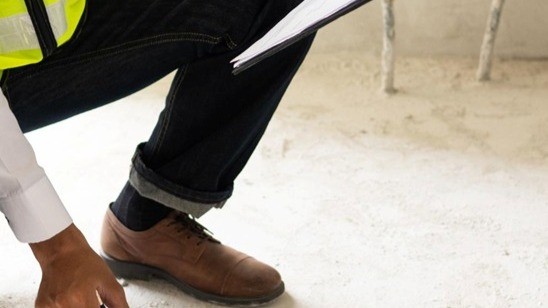
The Importance of Floor Inspections for Homeowners, Buyers, and Sellers
Floors are one of the most significant components of a home, both in terms of functionality and aesthetics. They bear the weight of daily activities, from walking to heavy furniture placements. Over time, floors can suffer from wear and tear, structural issues, and other problems that might go unnoticed until they become serious and expensive to fix. Whether you are a homeowner, a buyer, or a seller, floor inspections are essential for ensuring the safety, stability, and longevity of your home. This article explores why floor inspections are so important for homeowners, buyers, and sellers.
1. For Homeowners: Ensuring Safety, Comfort, and Longevity
Why Floor Inspections Are Crucial for Homeowners
For homeowners, flooring is not just about aesthetics or decoration—it’s about safety and functionality. Floors that are improperly installed, aged, or damaged can cause discomfort, health issues, or even accidents. Here’s why floor inspections are essential for homeowners:
- Structural Integrity: Over time, floors may begin to sag, crack, or shift, especially if there are underlying structural issues. These problems, if left unchecked, can compromise the entire integrity of the home.
- Wear and Tear: Normal usage of floors can cause damage such as scratches, dents, or warping. An inspection ensures that any damage is detected early before it gets worse.
- Water Damage: Water damage due to leaks, floods, or humidity can warp wooden floors, loosen tiles, or even promote mold growth. A floor inspection will help detect hidden water-related issues.
- Uneven Flooring: Uneven floors are not just a cosmetic concern—they can also be a sign of foundation or structural problems. Addressing these issues early prevents potential safety hazards, such as tripping or falling.
- Health Concerns: Damaged flooring can sometimes lead to the development of mold or mildew, which can contribute to respiratory issues or allergies.
Benefits of Floor Inspections for Homeowners
- Prevent Expensive Repairs: Early detection of flooring issues can prevent costly repairs or replacements in the future. Small problems, like cracks in tiles or warped wood, are much more affordable to fix when caught early.
- Improved Comfort: A floor inspection ensures that your floors are even and free of structural defects, which improves the overall comfort of your home.
- Maintaining Home Value: A well-maintained floor system keeps the home in good condition, preserving its value. This is especially important when planning for future resale or home improvement projects.
- Safety: By inspecting floors for potential hazards such as cracks, loose tiles, or uneven surfaces, homeowners can prevent accidents and falls.
2. For Home Buyers: Making an Informed Purchase
Why Floor Inspections Are Crucial for Home Buyers
For home buyers, flooring inspections are essential to ensure that the home is a good investment and does not have hidden defects that could lead to major expenses. Here’s why flooring inspections are important for buyers:
- Identifying Hidden Problems: Floor issues may not always be visible to the untrained eye. Problems like warped wood, unstable tiles, or underlying foundation issues can often be concealed under carpets or rugs.
- Detecting Structural Issues: Floors that sag or have uneven surfaces are often a sign of larger structural problems, such as foundation issues. These are expensive to repair and could affect the long-term stability of the home.
- Repair Costs: The cost of fixing flooring problems can range from minor repairs (such as regrouting or sanding wood) to complete floor replacements. An inspection allows buyers to gauge potential repair costs and factor them into their decision-making process.
- Assessing the Condition of the Home: A floor inspection helps determine the overall health of the home. A home with floors in poor condition may indicate underlying maintenance issues that could extend beyond just the floors.
Benefits of Floor Inspections for Home Buyers
- Cost Savings: Identifying floor issues early allows buyers to negotiate the price down or ask the seller to handle repairs before closing. This ensures that you are not overpaying for a property with hidden defects.
- Peace of Mind: A floor inspection gives buyers confidence that they are making an informed decision and are aware of any potential issues that may need attention down the road.
- Long-Term Value: Knowing that the floors are in good condition means that the buyer can enjoy the home without worrying about costly repairs in the immediate future. It’s an investment that ensures the longevity and stability of the property.
3. For Home Sellers: Enhancing Property Appeal and Preventing Delays
Why Floor Inspections Are Crucial for Home Sellers
For sellers, a floor inspection can help identify and fix potential problems before the house hits the market. Buyers are often very critical when it comes to the condition of the floors, so it’s essential to address any floor-related issues beforehand. Here’s why floor inspections are important for sellers:
- Addressing Flooring Problems Before Listing: Sellers who fix any flooring issues before listing their homes can often ask for a higher asking price, as the property will be in better condition and more appealing to buyers.
- Avoiding Negotiation Hiccups: If the buyer’s inspection uncovers flooring problems, it can delay the sale or lead to negotiations over repair costs. Sellers can avoid this by addressing any issues upfront.
- Increasing Marketability: Well-maintained flooring increases the attractiveness of the property. Homes with clean, well-kept floors are more likely to sell faster than those with noticeable defects or outdated flooring.
Benefits of Floor Inspections for Home Sellers
- Faster Sale: Homes with properly inspected and repaired floors are more likely to sell quickly, which means less time on the market and a higher likelihood of securing a good price.
- Avoiding Price Negotiations: If the floor inspection is done before listing the property, sellers can fix issues and avoid the need for price negotiations due to flooring defects discovered later.
- Higher Selling Price: A home with well-maintained, high-quality floors can justify a higher asking price. Buyers are more willing to pay a premium for a home that requires less immediate work or repair.
4. The Floor Inspection Process and Key Components
A floor inspection typically includes the following steps:
- Visual Inspection: Inspectors will visually examine the floors for any visible damage such as cracks, discoloration, warping, or uneven surfaces. They will also check the condition of floor coverings (such as tiles, carpet, and hardwood) to ensure they are in good shape.
- Structural Integrity Check: The inspector will assess the stability of the floors, checking for any signs of sagging, shifting, or unevenness. They will check for potential foundation issues that could be affecting the floor structure.
- Water Damage Inspection: Floors that have been exposed to water may show signs of damage, such as warping, discoloration, or mold growth. The inspector will check for any hidden signs of water damage, particularly around plumbing systems, basements, or areas prone to flooding.
- Moisture Level Check: The moisture content in floors, especially wood floors, will be checked to identify any issues with humidity, leaks, or water damage.
- Tile and Grout Inspection: For tiled floors, the condition of the grout and the tiles themselves will be inspected. This includes checking for loose tiles, cracks, and wear around edges and seams.
- Subfloor Condition: In some cases, the subfloor underneath the visible flooring material will be inspected for any signs of damage, especially if the floors are sagging or unstable.
Protecting Your Home with Floor Inspections
Floor inspections are a vital part of maintaining a safe, comfortable, and long-lasting home. For homeowners, they help ensure that floors remain in good condition and prevent costly repairs. For buyers, a floor inspection provides the confidence that the home is a sound investment and free from hidden problems. For sellers, addressing any floor-related issues before listing the property increases its appeal and can contribute to a faster sale and higher asking price.
At BPHomes, we offer comprehensive floor inspections as part of our home inspection services. Our goal is to help homeowners, buyers, and sellers identify potential floor issues early, saving you time, money, and stress in the long run.
By conducting thorough floor inspections, you can protect your investment, maintain a safe environment, and ensure that your home’s floors continue to provide comfort and value for years to come.
Dr Balaji Singh
Founder & CEO of BPT Group


